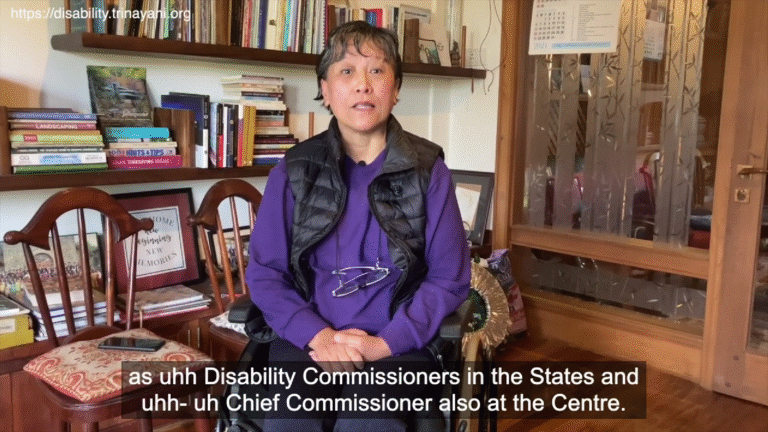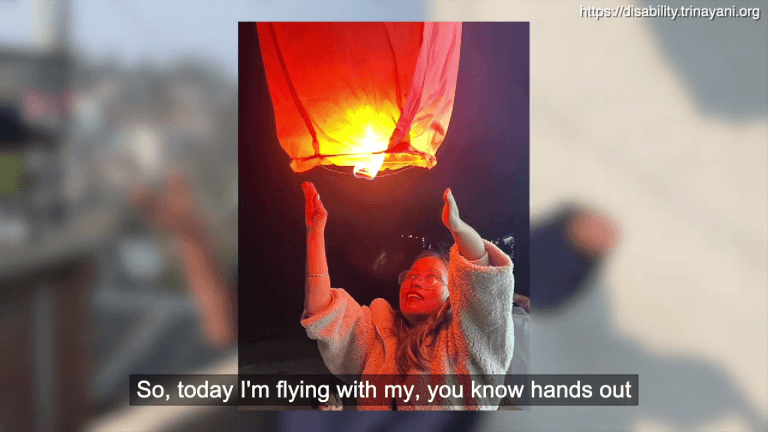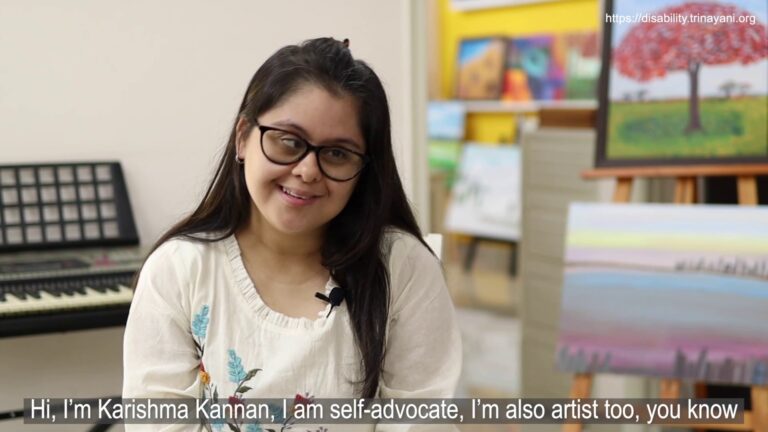The Compassionate Leader – Bertha Dkhar
This film follows Bertha Dkhar, Executive Director of the Bethany Society in Shillong, as she opens up about her journey of leadership as a visually impaired person. With warmth and candour, she dispels myths and shows us what real teamwork looks like. For Bertha, inclusion is not an abstract idea but something lived each day – in colleagues stepping forward to support her, in the shared give-and-take of responsibility, and in the trust that grows when people listen, adapt, and believe in one another.
This film offers insight into the lived experience of Bertha Dkhar, Executive Director of the Bethany Society, Shillong, wherein we explore what true inclusion looks like – not as charity, but as collaboration, respect, and responsibility.
From misconceptions about braille and technology to the everyday realities of leadership, Bertha, who lives with visual impairment, invites us to think more deeply about what it truly means to belong, to lead, and to be seen.
*
It is a frightening position for a visually impaired person to be in, to look after an organisation.
But this is what Bethany Society is all about, giving opportunities to people.
And umm for me uh, it was uh, th-the past year ha-had been an experience where I had seen the heart of Bethany Society, maybe at its best.
Where uhh because of the leadership that we have through Carmo and because of the people that I work along with, the colleagues, be it at any level, the support they give to us persons with disabilities working in the organisation, I feel it’s an excellent teamwork that is happening over here.
But there are times when I feel that people with no disabilities, when they support those with disabilities, they do a lot of sacrificing.
Like for me, uhh the-they type out my letters, they look at the formatting, they look at the spellings, all that.
Actually, it’s their hard work and I put my signature there.
But they do it with so much love and so much joy.
And this is I- what I want to say, that when inclusion is given a chance to happen, it does happen.
There’s always been a concern with me about persons with disabilities and their attitude.
We- we do a lot for them, or- or people do a lot for us rather.
I’m- the-they give us all the opportunities, they give the trainings and sometimes everything is free of cost.
And with so many schemes and entitlements that sometimes I feel persons with disabilities are being spoiled.
You know, to the extent of people demanding for what they want.
They-they no longer remember their duties and responsibilities and-and they go beyond the territories that had been marked out for them.
Whether they’re students, whether they are employees, uhh even amongst my colleagues.
So this is an area where I feel that we have to work together, where persons with disabilities also understand they are in society on an equal basis with others.
And that’s how they should be groomed.
I want to clarify two things:
One is what we hear people saying that Braille is obsolete.
Braille will never be obsolete.
It’s one way of reading and writing, for children especially.
And when we say children are reading aurally, A-U-R-A-L-L-Y, it’s not reading at all.
So their reading skills are thwarted when they are not given the opportunity.
Number two is that umm blind people does- do not really uh- are not really computer experts, in every way, automatically, they don’t become experts.
It’s a choice.
It’s a choice of communication, a choice of interest and-and in my case uhh, it’s a choice of ability.
I may be, I-I just see- don’t seem to be able to do it.
But that is the beauty of inclusion.
Therefore, wherever I go meetings, at any level, I carry my Braille slate.
And for my office work, I still use my Brailler.
Resources
accessibility, assistive technology, Bertha Dkhar, Bethany Society, Braille, colleagues with disability, disability awareness, Disability Leadership, disability rights, employee collaboration, empowerment, Equal Opportunities, inclusion, inclusion in India, leadership, leadership stories, persons with disabilities, Shillong, teamwork, Visual Impairment, workplace inclusion
More Videos
Learn more about disabilities and inclusion

Diethono Nakhro (Spinal Cord Injury)

Swarnalatha (Multiple Sclerosis)

Rohini & Vinod (Locomotor Disability)

Jai (Autism Spectrum Disorder)

Ashe Kiba (Congenital upper limb difference)

